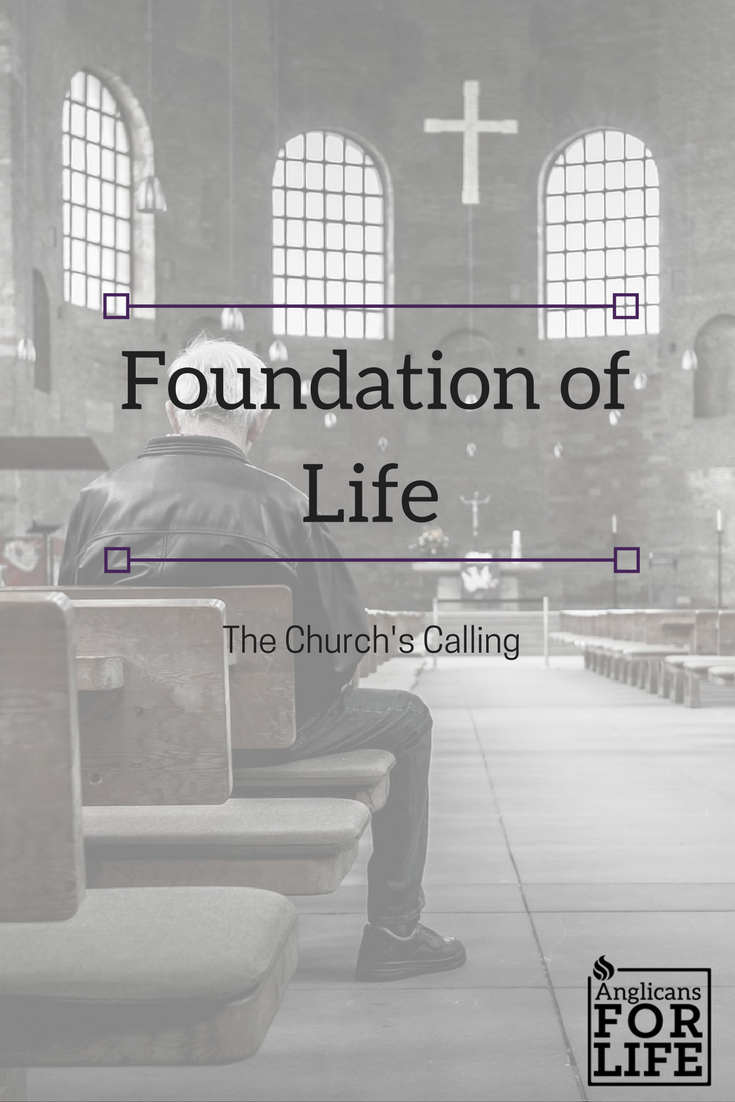Our cultural context for mission is changing dramatically with regard to the sanctity of life. The push for assisted suicide brings with it a grievous devaluing of human life. The supposed “right to die” often, perhaps inexorably, becomes a duty to die. In Canada, where assisted suicide has been permitted for just a year, the pressure on  the vulnerable is already evident. Catholic scholar George Weigel recounts his experience in the church he attends in the summer. Three elderly members of that church had recently been diagnosed with cancer. The first thing each of them was asked after being told their diagnosis was, “Do you wish to be euthanized?”
the vulnerable is already evident. Catholic scholar George Weigel recounts his experience in the church he attends in the summer. Three elderly members of that church had recently been diagnosed with cancer. The first thing each of them was asked after being told their diagnosis was, “Do you wish to be euthanized?”
Wherever assisted suicide is legalized, purported safeguards, which are shown to be inadequate and even weak protections, are methodically taken away. In 14 years, Belgium has gone from euthanizing terminally ill adults, to euthanizing chronically ill adults, to euthanizing physically healthy adults who have lost the will to live, to euthanizing children.
In Canada, while the new law only permits euthanizing adults, parents are already reported to be pressuring doctors to euthanize their children.
CBS News reports that in Iceland, Down Syndrome has been almost entirely eliminated, not because they’ve cured it, but because, through the mandatory availability of testing, parents are opting to eliminate through abortion nearly all the children who have it.
Leo Alexander was the American psychiatric representative to the Nuremberg trials, which brought to justice the mass murderers of the Nazi death camps. Alexander explained the origin of the Nazi Holocaust by saying that it all began with the concept that there was such a thing as human life not worthy to be lived.
Frank Stephens, an actor and spokesman for people with Down Syndrome, testified recently before Congress. He said, “I don’t feel I should have to justify my existence. Is there really no place for us in the world?…Whatever you learn today,” he said, “please remember this, I am a man with Down syndrome and my life is worth living.”
I’ve had a few people express concern that I give too much attention to these sanctity of life issues. After all, there are other priority concerns. Indeed there are, and anyone attending this Synod can see that we are engaging a number of them.
But the value of human life is foundational. It is rock-bottom biblical truth. It is also a priority concern of our Church. The Anglican Church in North America put in our Canons from day one the directive that “all members and clergy are called to promote and respect the sanctity of every human life from conception to natural death.”
This is not one of those issues where everyone agrees on the goal but disagrees, however sharply, on how to get there. There are powerful forces with growing influence that do not share our core conviction about life.
The loss of 60 million unborn lives in the US since Roe v Wade is a big deal. Worldwide, it’s that many every year.
Public policy aside, our members are wounded and grieving over past abortions, they are struggling over end of life issues in their own families, and they are vulnerable to pressure to end their own lives. The culture of death is pressing in on teenagers and others to take their own lives.
I call upon you to honor life, personally, pastorally, publicly; to care for the weak and vulnerable, to speak for the voiceless. And I again invite you to join in the day of outstanding teaching called “Mobilizing the Church for Life” on January 23 and the joyous March for Life in Washington the next day.
Written by The Rt. Rev. John Guernsey, Bishop of the ACNA Diocese of the Mid-Atlantic, originally shared at the November 2017 DOMA Synod.
